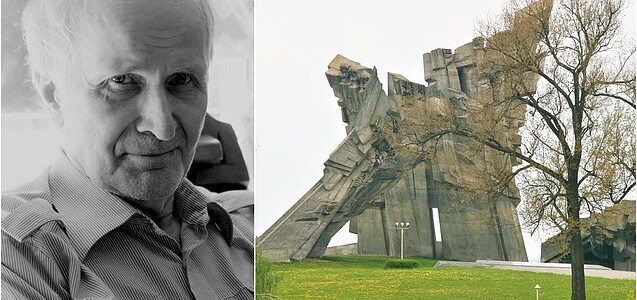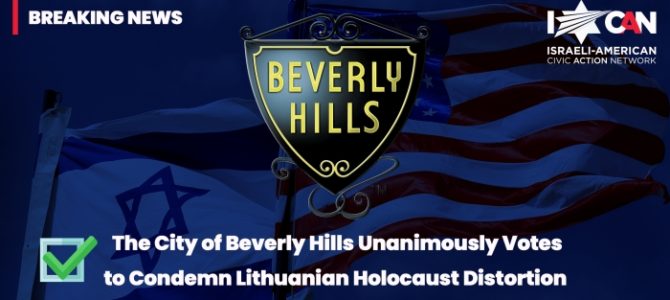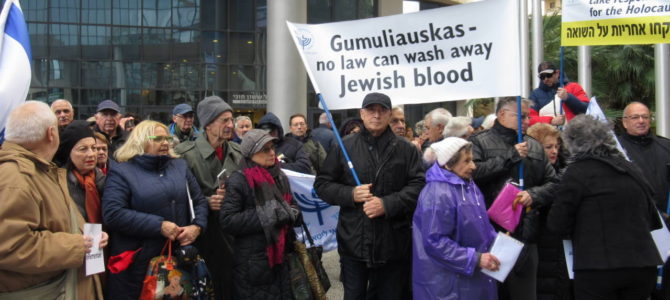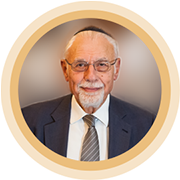Lithuanian Jewish Community, Pylimo street no. 4, LT-01117 Vilnius, telephone (8) (5) 261 3003, fax (8) (5) 2127915, email info@lzb.lt
to:
Office of Prosecutor General,
Rinktinės street no. 5A, LT-01515 Vilnius
email: generaline.prokuratura@prokuraturos.lt
cc:
President of the Republic of Lithuania Gitanas Nausėda
email: kanceliarija@prezidentas.lt
Speaker of the parliament of the Republic of Lithuania Viktoras Pranckietis
email: Viktoras.Pranckietis@lrs.lt
Statement
On Anti-Semitic Activities
May 27, 2020
Vilnius
The Lithuanian Jewish Community constantly monitors information about expressions of anti-Semitism and provides the corresponding information on these expressions and the reaction by state institutions to it to international institutions fighting anti-Semitism.
Recently the LJC learned two members of the Lithuanian parliament’s National Security and Defense Committee at the committee’s sitting of May 20, 2020, raised their arms in salute to one another in the fashion which prevailed in Nazi Germany (an excerpt of the meeting was posted on youtube at https://youtu.be/2ZATZiDvSdI). Raising the arm in this manner (with two fingers raised higher) unavoidably leads to Jewish people associating the salute with the worship and lionization of Hitler and the intentional and brutal degradation and extermination of Jews.
Following thorough examination of this video material one has to come to the conclusion it contains public derision, degradation and incitement to hatred of Jews based on their ethnicity (and perhaps other ethnic groups as well who were persecuted by the Nazis). It is clear from the recording that members of the parliament of the Republic of Lithuania, to whom high moral standards are applied, are performing this action.
For some reason their colleagues at the sitting (other members of the National Security and Defense Committee and members of cabinet) tolerated this in silence, neither disciplining nor condemning their two “fellow thinkers.”
We do not gainsay the possibility the recording was fabricated. In that case it incurs no lesser liability, because this sort of recording also seeks the same aims, to divide the ethnic communities living in Lithuania.
It should be noted the excerpt from the meeting which carried the date and the appellation “Nazis in the Parliament of the Republic of Lithuania” was neither composed nor posted by the LJC.
Article 25 of the constitution of the Republic of Lithuania enshrines the right to express one’s convictions and the right to provide information which cannot be restricted except by law when it is necessary to protect public health, personal honor and dignity, privacy, public morality or for the defense of the constitutional order, while part 4 of this same article provides freedom of expression does not include criminal actions such as sowing ethnic, racial, religious or social discord, calls to violence and discrimination, slander and libel and disinformation.
One instance of restriction on the freedom of self expression is contained in article 170 of the criminal code of the Republic of Lithuania. Incitement against any ethnic, racial, religious or other group of people doesn’t necessarily include the call to commit a specific violent or criminal act; public derision and degradation are sufficient grounds, something which we observe in the aforementioned video material.
Attempts against people committed with offense, derision or slander against specific groups and groups of people is sufficient grounds for state institutions to assign priority to fighting racist statements in terms of irresponsible use of the right to self expression which does harm to the dignity or even safety of a portion of society or groups of people (European Court of Human Rights in the case Tor Fredrik Vejdeland and others vs. Sweden, February 9, 2012).
The composition of the crimes defined in both parts 2 and 3 of article 170 of the criminal code are formal: they are help to have been committed by the public performance of the acts enumerated, without regard to the consequences of these acts.
Therefore, based on the arguments and information above, we request you initiate a pre-trial investigation for the anti-Semitic crimes alleged in this statement (the act defined in article 170 of the criminal code or other crimes defined in the criminal code).
Appended: photographs (2) from the May 20, 2020, meeting of the National Security and Defense Committee of the parliament of the Republic of Lithuania.
Respectfully,
Faina Kukliansky, chairwoman


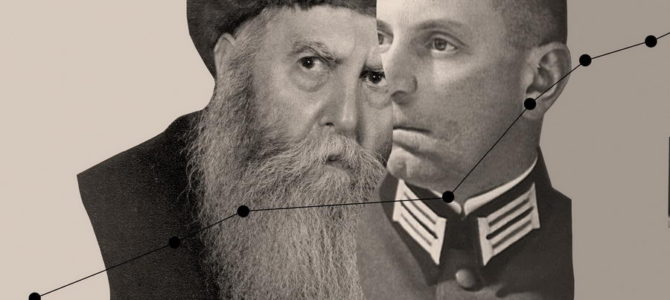
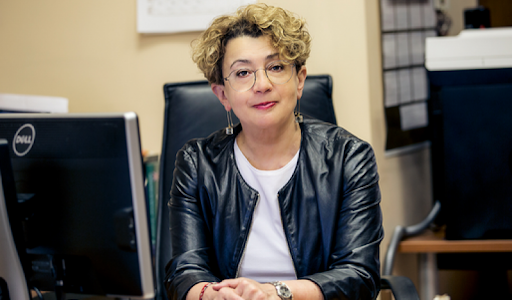


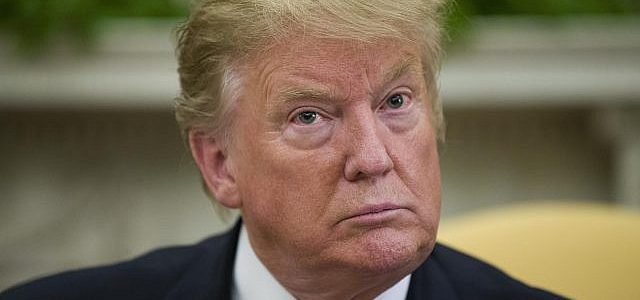
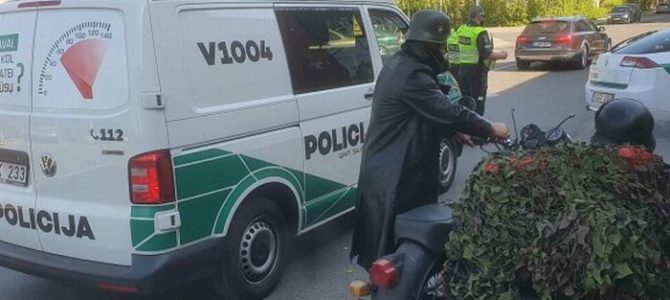
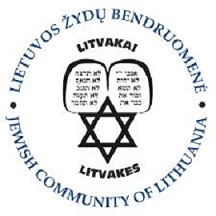
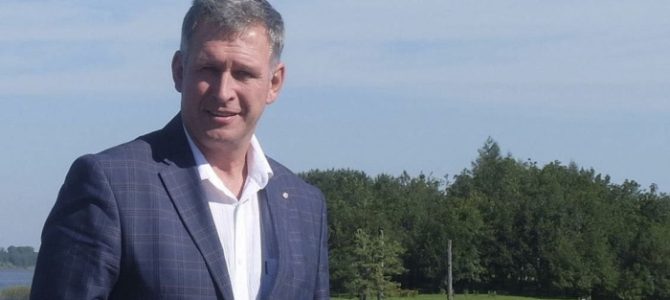
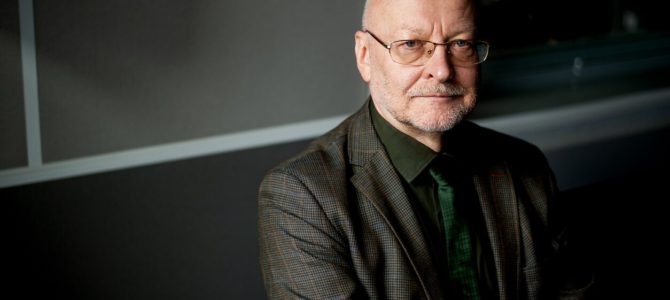
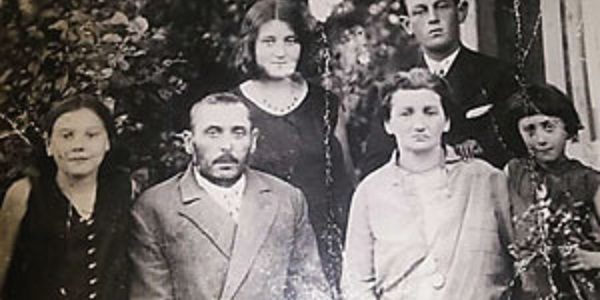
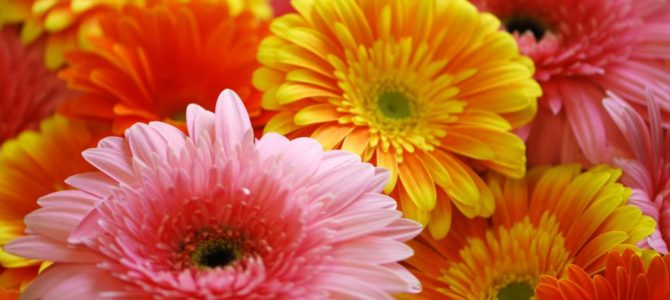

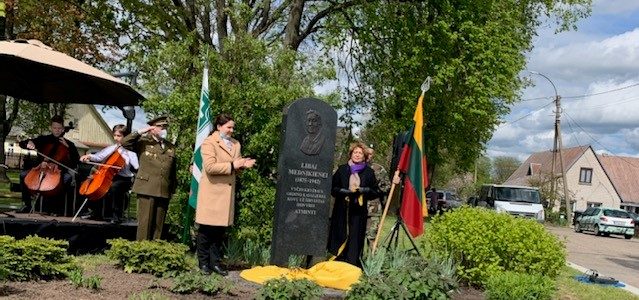

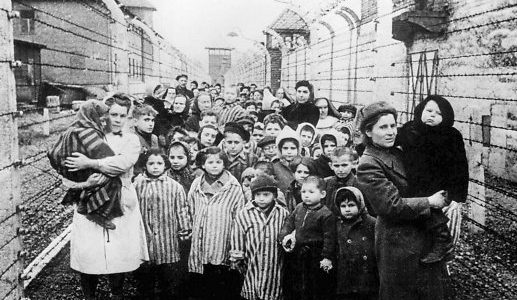
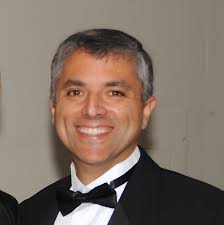 In response to this claim to the Lithuanian Public Prosecutor:
In response to this claim to the Lithuanian Public Prosecutor: